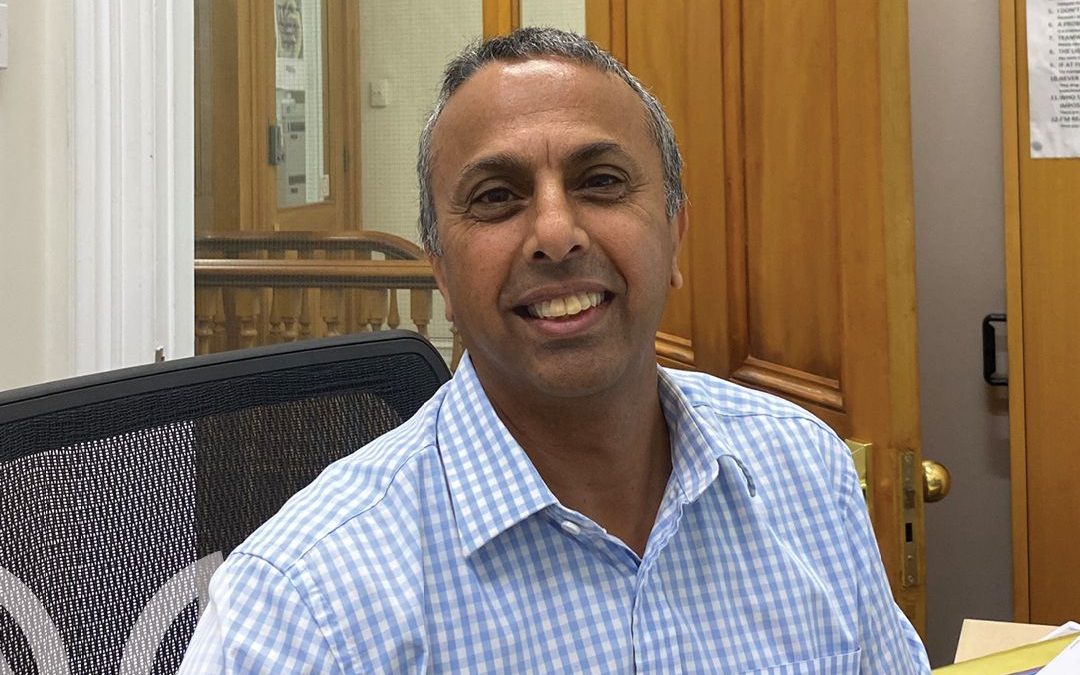
KiwiSaver for teens. Small start, big future.
When you’re a teenager, retirement feels a lifetime away. And it is. But what if your future self could thank you for something you did today? That’s the power of starting KiwiSaver early.
If you’re a parent helping your teenager navigate their first part-time job and the start of financial independence, now’s the perfect time to talk about KiwiSaver. It could be one of the most meaningful financial decisions you make together.
Here’s what you need to know about starting young, and why joining a values-aligned scheme like Christian KiwiSaver Scheme can give your teen a powerful head start.
Yes, teenagers can join KiwiSaver, and many already have
Teenagers aged 13-17 can join KiwiSaver with a parent or guardian’s consent. It won’t happen automatically when they start a job (that only kicks in at 18), but with a simple application through a provider like Christian KiwiSaver Scheme, your teen can open their account and begin their savings journey.
There are around 190,000 people under 18 already in KiwiSaver. From 1 July 2025, there’s even more reason to join. Teens aged 16–17 will now qualify for the government’s annual top-up of $260, provided they contribute just over $20 per week.
And, from 1 April 2026, employers will also be required to contribute to KiwiSaver for 16–17-year-old employees, as long as the teen is enrolled and contributing. It’s a major step forward in helping younger Kiwis build lifelong saving habits.
“Whoever gathers little by little will increase it.” — from Proverbs 13:11 (ESV)
How compound interest works
Let’s break it down with a simple example:
According to Sorted, if 15-year-old Tui puts $10 a week into her KiwiSaver account and it earns an average return of 5% per year (after fees and tax), by the time she’s 65 she could have around $110,000.
If she waits until she’s 25 to start saving the same amount, she’d end up with only about $63,000.
That’s a $47,000 difference just by starting 10 years earlier. It’s not about how much you contribute at the start; it’s about how long your money has to grow.
That’s compound interest in action; Money earning money while you sleep. The earlier you start, the more you benefit – even if you only contribute a small amount.
If Tui is working and is over age 16 by April 2026, , her employer will also start contributing to her KiwiSaver account on top of her own contributions. She may also be eligible for an annual government contribution. That means even more money going in, growing over time, and boosting her future balance well beyond what she saved herself.
KiwiSaver can help buy a first home
One of the biggest motivators for young people joining KiwiSaver is the chance to use it for a first home deposit.
After just three years in KiwiSaver, your teen may be eligible to withdraw their savings to help buy their first home. For a teenager, that means joining now could make them eligible in their early 20s, just when many start thinking seriously about getting onto the property ladder.
With housing costs rising, giving your child a financial head start could make all the difference. It’s one of the most practical, empowering reasons to open a KiwiSaver account during the teen years.
Where does the money come from?
The good news is, there’s no required minimum contribution for under-18s. That means parents, grandparents or the teen themselves can contribute as much or as little as they like.
For teenagers earning money from part-time jobs, they can choose to contribute from their wages, even if employers don’t yet top it up. And with no fees for under-18s in Christian KiwiSaver Scheme, that money goes straight towards building their future.
Some families treat KiwiSaver like a long-term gift account, contributing birthday or Christmas money, or setting up a small weekly transfer. Even $5 a week, left to grow over decades, adds up.
Joining early builds financial confidence
KiwiSaver is a great learning opportunity. Having an account introduces teenagers to real-life financial lessons like making regular contributions, understanding investment growth, and reading account statements.
Research shows that growing financial literacy helps young people manage money “with confidence and without parental or other intervention.” And with financial literacy now becoming a standard part of the school curriculum, more and more teens are ready to get involved.
By starting early, KiwiSaver becomes normal. And that helps build strong financial habits for life.
Why Christian KiwiSaver Scheme?
At Christian KiwiSaver Scheme, we believe in supporting long-term financial wellbeing in ways that reflect our values. That’s why we:
- Don’t charge fees for members under 18, so every dollar stays in their account
- Offer a choice of funds to suit different needs and timeframes
- Invest in ways that are values-aligned, and consistent with our Christian principles.
Then, when your teen becomes a first -home buyer, we can be there to support them with a competitive mortgage.
For many families, opening a KiwiSaver account is a practical expression of stewardship; a way to prepare for the future, make thoughtful decisions, and help the next generation thrive.
Ready to start? It’s simple
Here’s how to get going:
- Talk about the benefits with your teen or as a family
- Choose a provider that aligns with your values (like Christian KiwiSaver Scheme)
- Open an account and start small, even a few dollars a week makes a difference.
The sooner you start, the more time you give your money to grow. And when it comes to KiwiSaver, time really is the greatest gift.
Now is the perfect time to begin
Joining KiwiSaver is about learning, growing, and preparing for the future. Whether you use it to buy your first home, build long-term wealth, or simply form good money habits, the benefits of starting early are clear.
Start your journey with Christian KiwiSaver Scheme today and help your teen lay a foundation shaped by faith, purpose, and possibility.
Christian KiwiSaver Scheme is managed and issued by The New Zealand Anglican Church Pension Board (trading as Anglican Financial Care). The Product Disclosure Statement can be found here Documents | Christian KiwiSaver Scheme.











